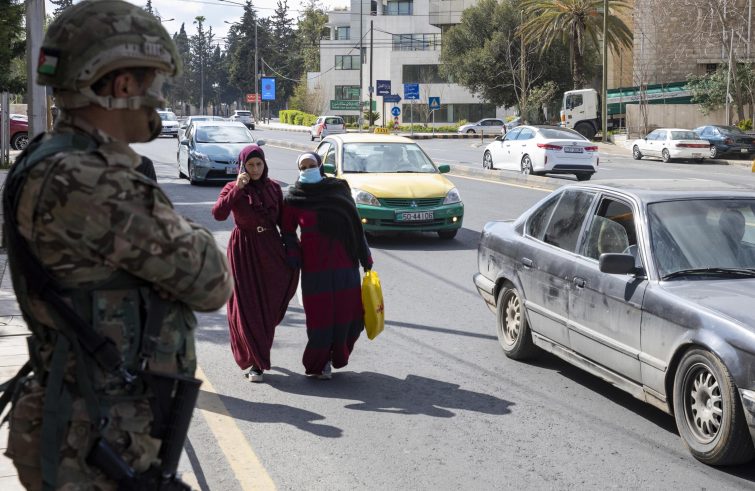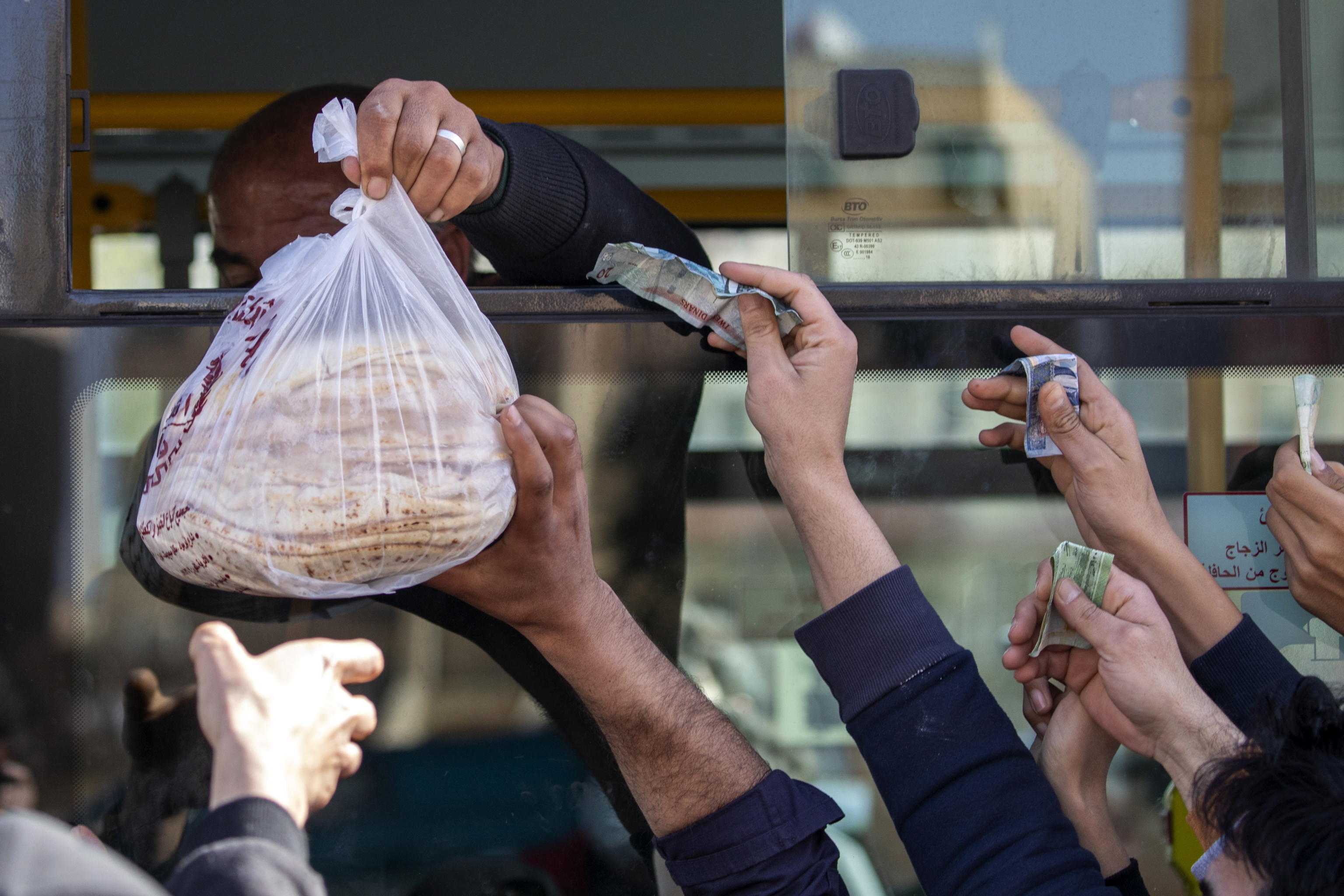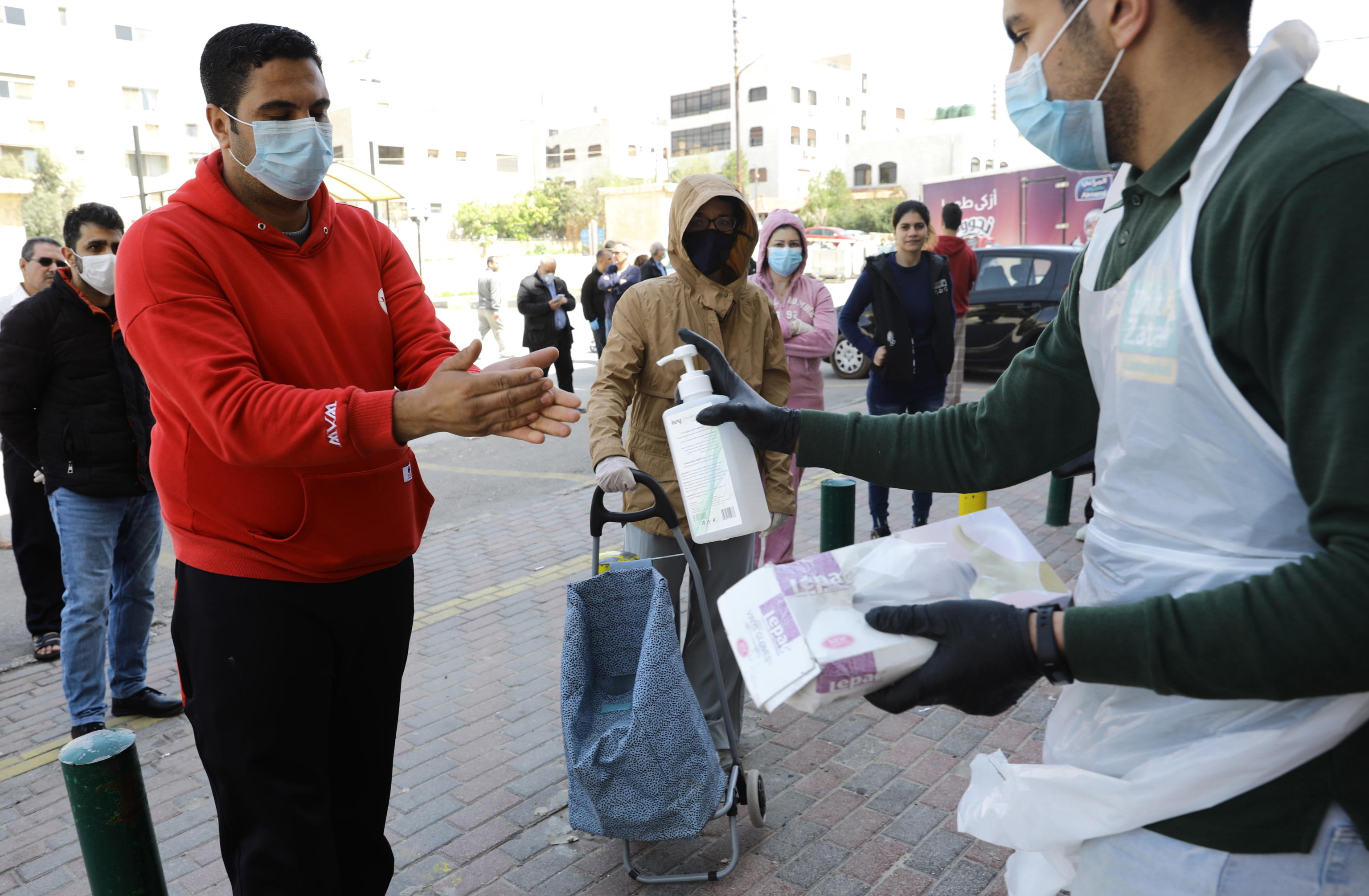
Total lockdown in Jordan that enforced an army-imposed curfew as of Sunday morning, March 22nd at 7am. Jordanian authorities are concerned about the numbers of the pandemic in the Hashemite Kingdom with 173 reported cases, one of them hospitalized, as of today, March 26, compared to 19 reported cases on March 25 and 26 the day before. A spread of the Coronavirus would pose a risk to the Country’s weak health system, hence the adoption of highly restrictive measures. King Abdullah yesterday reiterated his complete trust in his people’s compliance with all provisions aimed at safeguarding public health and safety. The King also received assurances regarding the delivery of food and other supplies to the population for the short and medium term and in any event for the entire curfew.
Restrictive measures. The Government had initially imposed a strict round-the-clock curfew but on March 25 it reverted to a more sustainable “10 p.m. to 6 a.m.” schedule. “On Saturday, March 21, the Government had taken drastic measures to contain the Coronavirus epidemic. All business activities, from the largest to the smallest, had been closed down,” local sources told SIR. “Only soldiers could be seen at roadblocks in the streets. No one could get out except for those few authorised people, among them doctors, nurses, health workers, pharmacists. On Tuesday March 24th, only bakers had worked to churn out bread loaves for delivery by the government to the population, along with other items (water, cooking gas and medicines).
In some areas of western Amman with the greatest proportion of poorer population segments, bread delivery buses have been assaulted by crowds.” The unrest occurred only in some districts of the capital and was probably caused by the short notice, only 12 hours, of the curfew. Since Sunday morning until March 25 Jordanian media reported that 1657 people have been arrested for curfew violation and now risk facing one year imprisonment.
 Jordan eases the lockdown. The government backpedalled on March 25th, announcing that the curfew would no longer be enforced around the clock, but only at night for 12 hours, from 6 p.m. to 6 a.m., sirens will mark the beginning. Premier Omar Razzaz has decided to re-open supermarkets and grocery stores from 10am to 6pm. But with some restrictions: shopping is allowed one person at a time and to those aged 16 to 60. The elderly and children must stay home. Inside the shops, customers must keep a distance of 1.5 metres from one another. In order to ensure supplies to people living in the suburbs, the State is organising the opening of convenience stores. Crowds and violations of the rules will not be permitted, the Prime Minister pointed out.
Jordan eases the lockdown. The government backpedalled on March 25th, announcing that the curfew would no longer be enforced around the clock, but only at night for 12 hours, from 6 p.m. to 6 a.m., sirens will mark the beginning. Premier Omar Razzaz has decided to re-open supermarkets and grocery stores from 10am to 6pm. But with some restrictions: shopping is allowed one person at a time and to those aged 16 to 60. The elderly and children must stay home. Inside the shops, customers must keep a distance of 1.5 metres from one another. In order to ensure supplies to people living in the suburbs, the State is organising the opening of convenience stores. Crowds and violations of the rules will not be permitted, the Prime Minister pointed out.
“The curfew,” Razzaz added, “is an unprecedented situation for us, with severe psychological repercussions. The present phase will require concerted efforts to combat the spread of the virus.”
 The support of the population. “As the organization is gradually set up, the situation should improve, also because there is a general feeling that the majority of the population supports these draconian measures – local sources added. People are also afraid of the virus due to uncertainty as to the number of Intensive Care units in the country’s hospitals. It must be said – they explained – that approximately 50% of the overall population ( Jordan’s inhabitants number about 10.5 million, ed.’s note) are illiterate and live below the poverty line. Many daily workers have nothing more to live on now since all business activities are closed. The government’s program is to provide food, water, gas, and whatever else the population needs and this is somehow possible in Amman. Also because
The support of the population. “As the organization is gradually set up, the situation should improve, also because there is a general feeling that the majority of the population supports these draconian measures – local sources added. People are also afraid of the virus due to uncertainty as to the number of Intensive Care units in the country’s hospitals. It must be said – they explained – that approximately 50% of the overall population ( Jordan’s inhabitants number about 10.5 million, ed.’s note) are illiterate and live below the poverty line. Many daily workers have nothing more to live on now since all business activities are closed. The government’s program is to provide food, water, gas, and whatever else the population needs and this is somehow possible in Amman. Also because
the absence of State aid in certain districts is replaced by neighbourly solidarity.
It is yet to be ascertained how the government will manage to provide food, especially to the most vulnerable, those living in the most remote areas of the country and areas with informal settlements of Syrian refugees.” As far as the latter are concerned, “most of them are registered with the UNHCR and the Ministry of Development and therefore can reasonably expect to receive aid. There is great concern and it will be necessary to see how the situation evolves in the near future. It also involves international cooperation and NGOs operating here in the country, ten of which are Italian.”









